
Renewable Energy Research and Applications
Scope & Guideline
Connecting Research and Real-World Applications in Renewable Energy
Introduction
Aims and Scopes
- Renewable Energy Technologies:
The journal emphasizes research and development of various renewable energy technologies, including solar, wind, biomass, geothermal, and hydropower, addressing both theoretical and practical aspects. - Energy System Optimization:
Publications often focus on optimizing energy systems for efficiency and sustainability, including hybrid systems that integrate multiple renewable sources and energy storage solutions. - Environmental Impact and Sustainability:
Research assessing the environmental impacts of renewable energy projects and technologies, including life-cycle assessments and sustainability analyses, is a core area of focus. - Economic and Policy Analysis:
The journal explores the economic feasibility and policy implications of renewable energy adoption, providing insights into market dynamics, investment strategies, and regulatory frameworks. - Innovative Applications and Case Studies:
It features innovative applications of renewable technologies in various sectors, including transportation, agriculture, and urban planning, along with detailed case studies that highlight real-world implementations.
Trending and Emerging
- Artificial Intelligence and Machine Learning Applications:
There's a growing trend in applying AI and machine learning techniques to optimize renewable energy systems, such as predictive modeling for energy production and smart grid management. - Energy Storage Solutions:
Research focusing on energy storage technologies, particularly in relation to integrating variable renewable energy sources like wind and solar, is increasingly prominent due to the need for reliable energy supply. - Decentralized Energy Systems:
Emerging interest in decentralized energy systems, including microgrids and off-grid solutions, reflects a shift towards localized energy production and consumption, particularly in developing regions. - Sustainable Urban Energy Solutions:
The integration of renewable energy solutions in urban planning and development is gaining traction, with increasing publications addressing smart cities and sustainable urban infrastructure. - Circular Economy in Renewable Energy:
There is a rising focus on the circular economy principles within the renewable energy sector, exploring how waste materials can be utilized for energy production and how renewable technologies can be designed for end-of-life reuse.
Declining or Waning
- Traditional Biomass Energy:
Research on traditional biomass energy sources appears to be waning as newer, more efficient technologies and cleaner energy sources gain traction in the renewable sector. - Non-Renewable Energy Comparisons:
Comparative studies between renewable and non-renewable energy sources are less common, indicating a shift towards a more focused approach on advancing renewable technologies rather than contrasting them with fossil fuels. - Basic Renewable Energy Education:
Papers focused solely on introductory or educational aspects of renewable energy are decreasing, suggesting a maturation of the field where practitioners are seeking more advanced, applied research. - Single Technology Focus:
Research that solely addresses a single renewable technology without considering integration with other systems or technologies is becoming less prevalent, reflecting a trend towards more holistic approaches.
Similar Journals

AIMS Energy
Fueling Knowledge, Powering SolutionsAIMS Energy is a leading academic journal published by the American Institute of Mathematical Sciences (AIMS), dedicated to advancing the field of energy research. With a strong commitment to Open Access since its inception in 2013, this journal offers a platform for researchers, professionals, and students to share innovative findings and enrich the discourse in crucial areas such as Energy Engineering and Power Technology, Fuel Technology, and Renewable Energy, Sustainability and the Environment. Recognized for its quality, AIMS Energy holds a respectable impact with a Q3 ranking in multiple categories as of 2023, and it ranks within the top half of its peers in the Scopus database. The journal's objective is to disseminate high-quality research that addresses contemporary challenges in energy and offers sustainable solutions. By fostering collaboration and discussion among various stakeholders, AIMS Energy plays a critical role in shaping the future of energy technologies and policies.

International Journal of Renewable Energy Research
Transforming energy landscapes with cutting-edge insights.International Journal of Renewable Energy Research (IJRER) is a distinguished peer-reviewed journal dedicated to advancing the field of renewable energy through innovative research and comprehensive analyses. Published by the esteemed INT JOURNAL RENEWABLE ENERGY RESEARCH, this journal has established itself as a vital resource for academics and industry professionals alike since its inception in 2011. With a focus on a wide array of topics in Energy Engineering and Power Technology and Renewable Energy, Sustainability and the Environment, IJRER has been recognized for its contributions, attaining a Q3 categorization in Energy Engineering and Power Technology and a Q4 rank in Renewable Energy for 2023. The journal is indexed in Scopus, demonstrating its global reach and impact, with notable rankings in both relevant categories. Researchers can access a wealth of valuable insights and findings that are crucial for fostering sustainable practices and technologies. Thus, IJRER plays a pivotal role in driving the future of renewable energy research and innovation.

Problemele Energeticii Regionale
Advancing Sustainable Innovations in Energy EngineeringProblemele Energeticii Regionale is a notable academic journal focused on the field of energy engineering and sustainable energy solutions, published by the Institute of Power Engineering, Academy of Sciences of Moldova. Since its inception in 2005, this Open Access journal has become a significant platform for disseminating research and innovations in various energy-related domains, including renewable solutions, fuel technology, and energy sustainability. While its impact factor metrics suggest it currently resides in the Q4 quartile category across multiple scopes—such as Energy Engineering, Power Technology, and Renewable Energy—it provides critical insights that can pave the way for advancements in regional energy challenges. Researchers, professionals, and students alike will find this journal an essential resource for understanding and contributing to the ongoing discourse in the energy sector. With its commitment to accessibility and knowledge sharing, Problemele Energeticii Regionale aims to foster a collaborative and informed community focused on energy innovation and sustainability.
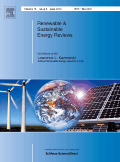
RENEWABLE & SUSTAINABLE ENERGY REVIEWS
Transforming Energy Insights into ActionRENEWABLE & SUSTAINABLE ENERGY REVIEWS is a premier interdisciplinary journal published by Pergamon-Elsevier Science Ltd that focuses on cutting-edge research and reviews in the field of renewable energy and sustainability. With an esteemed impact factor, the journal stands out in Q1 category rankings for Renewable Energy, Sustainability, and the Environment, holding a remarkable rank of #7 out of 270 in Scopus with a 97th percentile rating. Since its inception in 1997, it has provided a vital platform for scholars and practitioners to disseminate knowledge, share innovative solutions, and discuss the technological advancements needed to foster a sustainable energy future. Although not currently offering open access, the journal ensures valuable insights are available to its audience, contributing enormously to the global discourse on renewable energy policy and practice. The journal is vital for anyone interested in the dynamics of sustainability in energy systems, as it bridges the gap between academia and practical application.
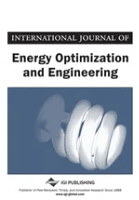
International Journal of Energy Optimization and Engineering
Pioneering Research in Energy and SustainabilityThe International Journal of Energy Optimization and Engineering, published by IGI Global, is a leading platform dedicated to advancing the field of energy management and optimization. With its ISSN 2160-9500 and E-ISSN 2160-9543, this journal serves as an essential resource for researchers, professionals, and students interested in innovative strategies for energy efficiency and sustainability. Although it does not currently offer Open Access options, the journal is committed to high-quality peer-reviewed content that aims to address the pressing challenges of energy consumption, renewable resources, and optimization techniques in engineering applications. The significance of this journal in the evolving landscape of energy technologies makes it an invaluable source for those aspiring to contribute to the development of sustainable energy practices across the globe.
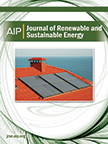
Journal of Renewable and Sustainable Energy
Empowering Tomorrow's Energy InnovationsThe Journal of Renewable and Sustainable Energy, published by AIP Publishing, stands at the forefront of research in the fields of renewable energy and sustainable practices. With an ISSN of 1941-7012, this journal aims to foster innovative research and exchange of knowledge on sustainable technologies and methodologies that contribute to environmental conservation and energy efficiency. Achieving a prestigious Q2 ranking in the category of Renewable Energy, Sustainability, and the Environment, it ranks 135 out of 270 journals in Scopus, signifying its impactful contributions to the field. The journal, active from 2010 to 2024, provides a platform for authors, analysts, and practitioners to disseminate significant findings that can shape future environmental policies and energy frameworks. Although not currently an Open Access publication, it remains an essential resource for researchers dedicated to advancing sustainable development and energy solutions.
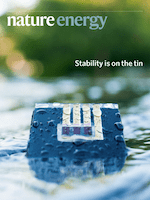
Nature Energy
Exploring the intersection of innovation and sustainability in energy.Nature Energy is a leading academic journal focused on the multidisciplinary field of energy research, published by NATURE PORTFOLIO. Since its inception in 2016, the journal has rapidly established itself as a key platform for innovative research on energy technologies, sustainable practices, and advancements in renewable energy sources. With an impressive impact factor and consistently ranked in the Q1 category across various disciplines, including Electronic, Optical and Magnetic Materials, Energy Engineering, and Fuel Technology, Nature Energy attracts a global audience of researchers and professionals committed to addressing the pressing energy challenges of our time. Its Scopus rankings highlight its exceptional standing in the field, with leading positions in Energy Engineering and Renewable Energy categories, underscoring its importance in shaping future energy strategies. For those looking to contribute to the discourse on sustainable energy solutions, Nature Energy offers an engaging avenue for dissemination of cutting-edge research and innovative ideas.
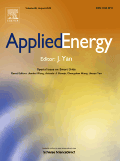
APPLIED ENERGY
Illuminating pathways to efficient energy practices.APPLIED ENERGY, published by Elsevier Science Ltd, is a leading journal dedicated to the advancing field of energy research, focusing on practical engineering solutions to contemporary challenges in energy management, sustainability, and environmental impact. With a rigorous peer-review process and a strong commitment to promoting innovative research, APPLIED ENERGY proudly holds multiple Q1 rankings across various categories, including Building and Construction, Civil and Structural Engineering, and Renewable Energy, reflecting its prestigious position within the academic community. Researchers and professionals can benefit from its comprehensive scope, covering topics that span from policy and technology to market dynamics. Although it is not an open-access journal, it provides access options that facilitate research dissemination. With its historical significance since 1975 and an ambitious outlook up to 2025, APPLIED ENERGY continues to be an essential resource for anyone looking to stay at the forefront of energy research and application.

Solar Energy
Empowering knowledge in the realm of solar technologies.Solar Energy is a premier academic journal published by PERGAMON-ELSEVIER SCIENCE LTD, focusing on the advancements and research in the field of solar energy technology, sustainability, and related sciences. With an ISSN of 0038-092X and E-ISSN 1471-1257, this influential journal has been at the forefront of renewable energy research since its inception in 1957, with a commitment to fostering scientific communication up to the year 2024. Recognized globally, it holds an impressive impact factor, ranking in the Q1 category in both Materials Science and Renewable Energy, Sustainability and the Environment, positioning it among the top journals in its field—ranked #50/463 in General Materials Science and #34/270 in Renewable Energy. The journal serves as a vital platform for researchers, professionals, and students, providing access to groundbreaking studies, innovative methodologies, and comprehensive reviews that advance the understanding and application of solar energy technologies. While the journal is not open access, its rigorous peer-review process ensures the publication of high-quality, impactful articles that are invaluable to the academic community striving to address global energy challenges.
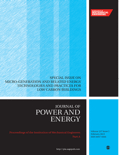
PROCEEDINGS OF THE INSTITUTION OF MECHANICAL ENGINEERS PART A-JOURNAL OF POWER AND ENERGY
Empowering Research for a Sustainable FuturePROCEEDINGS OF THE INSTITUTION OF MECHANICAL ENGINEERS PART A-JOURNAL OF POWER AND ENERGY, published by SAGE PUBLICATIONS LTD, is a pivotal journal dedicated to advancing the fields of mechanical engineering and energy technology. With a history spanning from 1983 to 2024, this journal provides a respected platform for researchers and practitioners to disseminate findings that address contemporary challenges in power generation, energy efficiency, and sustainable engineering practices. As evidenced by its quarter ranking in Q3 within the categories of Energy Engineering and Power Technology, and Mechanical Engineering, it serves as a significant resource for academics aiming to enhance their understanding and explore innovation in these critical areas. While currently not an open-access journal, the research published here is invaluable for both ongoing education and professional practice, making it an essential read for anyone engaged in the engineering disciplines.